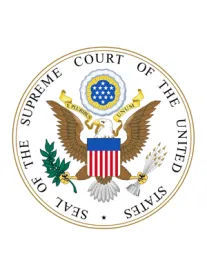Earlier today, the Supreme Court vacated the Ninth Circuit’s judgment in Frank v. Gaos, which had presented the Court with an opportunity to address whether Rule 23 permits settlements that provide cy pres awards to charitable organizations—but no direct relief to class members. The Court declined to rule on that question, however, and instead remanded the case to the Ninth Circuit to consider whether the named plaintiffs possess Article III standing. In doing so, the Court agreed with the Solicitor General that there were threshold questions of jurisdiction that should be resolved before merits-based questions of settlement fairness could be reached.
The Claims
In the underlying lawsuit, the plaintiffs alleged that the defendant’s search engine was collecting and transmitting personal information in violation of the Stored Communications Act every time a user clicked on a link in its search results. Eventually, the parties settled, and the defendant agreed to revise its webpages to provide disclosures regarding the collection and transmission of the information in question. The settlement did not provide a settlement fund for the class members, however. Instead, the defendant made an $8.5 million payment that would be divided between class counsel ($2.1 million) and a cy pres award to a number of institutions studying online privacy ($6.4 million).
The Objections
Five class members, both led and represented by prominent legal activist Theodore Frank, objected to the settlement. They argued that cy pres-only settlements create improper conflicts of interest for class counsel (who, unlike the class members, directly profit from the settlement), and that it is unfair and unseemly that recipients of cy pres awards are often (and in fact were in this case) alma maters or affiliates of class counsel. The district court approved the settlement, and the Ninth Circuit affirmed. The Court then granted review to determine whether cy pres-only settlements are permissible under Rule 23.
The Decision
At the Supreme Court, the Solicitor General filed an amicus brief in support of neither party, suggesting that none of the named plaintiffs had a sufficiently concrete and particularized injury to confer Article III standing. Specifically, the Solicitor General argued that, under the Supreme Court’s 2016 decision in Spokeo, Inc. v. Robbins, 136 S. Ct. 1540 (2016), even plaintiffs who allege a violation of a statutorily created right are obliged to point to an injury that is “‘de facto’; that is, it must actually exist.” 136 S. Ct. at 1548. Because the plaintiffs appeared to have relied solely on their allegation of a statutory violation, the Solicitor General cautioned that they might fail to satisfy the injury-in-fact requirement of Article III. Following oral argument, the Supreme Court ordered the parties to submit supplemental briefing on the standing issue. In that briefing, the defendant search engine agreed that the case should be remanded to the lower courts to address the standing issue.
In a per curiam decision issued today, the Court agreed that there was a substantial question as to the named plaintiffs’ standing under Spokeo. The Court thus cautioned that: “[a] court is powerless to approve a proposed class settlement if it lacks jurisdiction over the dispute, and federal courts lack jurisdiction if no named plaintiff has standing.” Rather than address that question itself in the first instance, it remanded the case to the Ninth Circuit with instructions to address the issue.
Justice Thomas dissented, however, concluding that the plaintiffs had satisfied the requirements of Article III. In his view, all that Article III requires is an allegation that the defendant has violated one of the plaintiff’s private rights; because in his view the Stored Communications Act confers such a private right, the plaintiffs’ claims against Google met Article III’s requirements. He, therefore, would have reached the merits and reversed approval of the settlement on the basis that “cy pres payments are not a form of relief to the absent class members and should not be treated as such (including when calculating attorney’s fees).”
The Takeaway
Although today’s ruling does not provide the clarity regarding cy pres settlements that had been hoped for, it does raise the possibility that the Court will, following the Ninth Circuit’s decision on remand, once again seek to clarify the rules governing Article III standing—and, in particular, how Spokeo applies to the sort of statutory violations alleged in Frank. In the meantime, the Court may provide further clarity on the standing issue if it grants the fully briefed petition for certiorari in Zappos.com, Inc. v. Stevens, No. 18-225, which presents the question of whether standing is met in data breach class actions as to plaintiffs who allege no concrete injury as a result of the breach.





 />i
/>i

